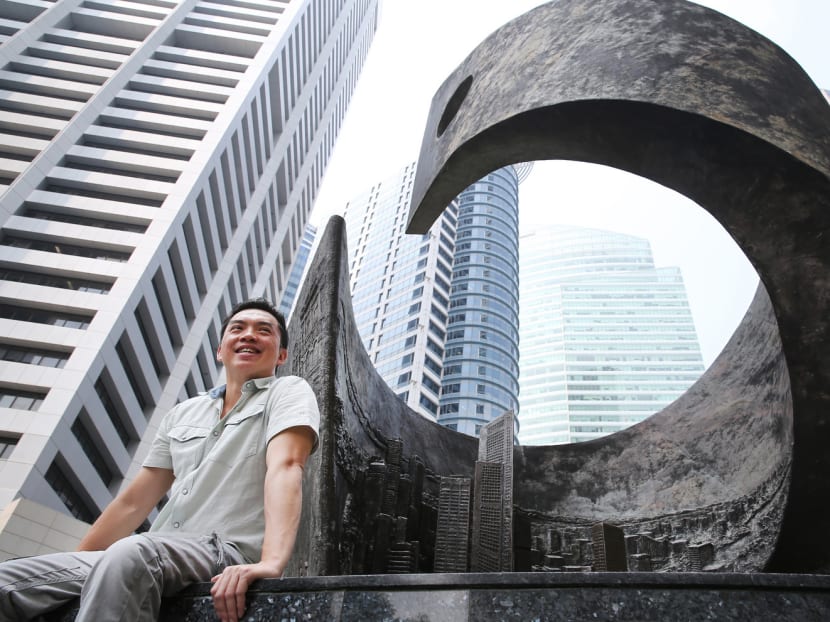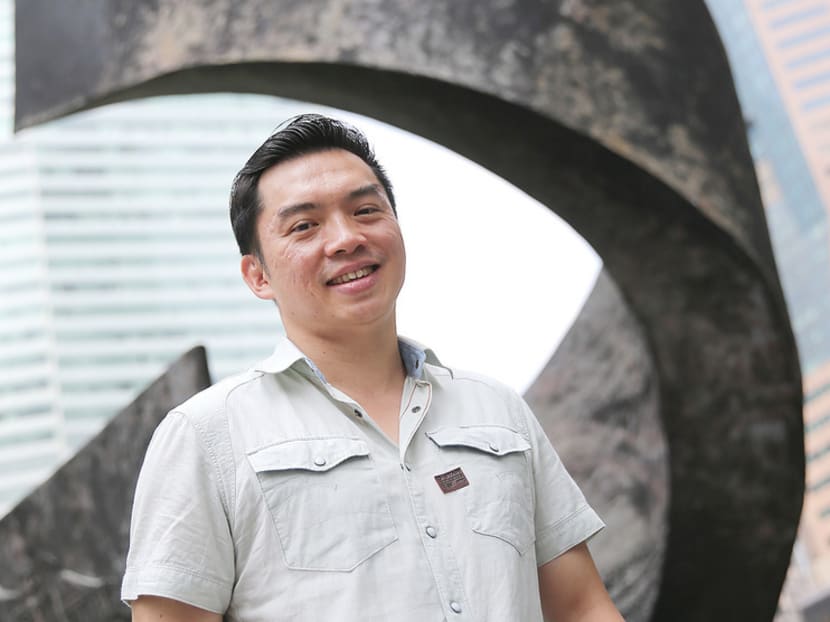Philanthropy with guts and gumption
SINGAPORE — His encounters with kindergarteners who smoked cigarettes and the depressed elderly who were languishing in joyless nursing homes convinced Mr Lee Poh Wah that he was right to give up his civil service job a decade ago to dedicate his life to philanthropy.


SINGAPORE — His encounters with kindergarteners who smoked cigarettes and the depressed elderly who were languishing in joyless nursing homes convinced Mr Lee Poh Wah that he was right to give up his civil service job a decade ago to dedicate his life to philanthropy.
“I feel lousy and angry when I see such things,” said the chief executive officer of the Lien Foundation, a philantrophic organisation known for its unconventional work in dealing with issues such as end-of-life care, water sanitation and early childhood education.
As the organisation’s CEO, Mr Lee, 44, is in a position to bring about some positive changes to such groups.
For example, from mid-2013 to last year, the Lien Foundation spent more than S$7 million on projects for early childhood education and eldercare, as well as an additional S$3 million for Lien AID, which works to make water and sanitation accessible in rural areas of Cambodia, China and Vietnam.
Having worked in the private real-estate investment sector and later for two years in the then Ministry of Community Development, Youth and Sports, Mr Lee said he found philanthropy liberating.
“One of my yardsticks is that if I don’t fall off my chair when I hear an idea, then this (idea) has no hope,” he added with a laugh, about the unusual solutions the Lien Foundation often pursues.
They include initiatives such as last year’s Die Die Must Say campaign, which ran five getai shows reaching out to 13,000 people. The campaign was to encourage elderly Chinese Singaporeans to talk about the taboo subjects of death and dying.
“If you want to solve the deepest problem of human life, you have to be, in a sense, abnormal. Stop accepting the status quo, stop going with the flow, stop conforming,” said Mr Lee, who donned a worn denim jacket for the interview instead of the traditional suit and tie.
Mr Lee admitted he is drawn towards “creatively maladjusted” people. “Philanthropy is a process of finding talented people with great ideas, and supporting them with resources, space and the freedom to run with them,” he said.
Still, Mr Lee rejects the common assumption that Singapore society stifles creativity, adding that it is the foundation’s duty to give people the “courage to create beautiful trouble”.
“I don’t think we should pigeonhole (Singaporeans),” said Mr Lee, noting how the Lien Foundation often partners local organisations, such as St Joseph’s Home and Asian Women’s Welfare Association.
His personal hero is Catholic nun Geraldine Tan of St Joseph’s, a nursing home for the aged in Jurong.
“You look at her, a petite lady in a habit, but she works magic on you … I find the Catholic sisters are jewels. It’s unconditional love.”
Having worked with people such as Sister Geraldine, Mr Lee rejects the notion that Singaporeans are unkind.
Instead, Singaporeans simply need to be aware of the nation’s problems that lie under the surface.
“It depends on the opportunity, whether they have access to scenarios to see the conditions upfront … It’s like people saying we have no poverty — that’s nonsense,” said Mr Lee.
He pointed to two studies commissioned by the foundation — the Starting Well Index and Quality of Death Index — that showed Singapore still had a long way to go in some areas.
The Starting Well Index ranked Singapore 29th among 45 countries in pre-school education, while the Quality of Death Index ranked the nation’s eldercare environment 18th out of 40 countries studied.
Though Mr Lee acknowledged the importance of making improvements, he said there is “a limit to gap-filling” when it comes to fixing the problems in eldercare and early childhood education.
“If you really want to transform long-term care, start with a clean slate,” said Mr Lee, pointing to the foundation’s S$15 million Jade Circle nursing home, which will offer an environment that is different from the typical retirement facility here.
While most nursing homes squeeze six to eight patients in a room, Jade Circle, which is scheduled to open next year, will feature single- or double-occupancy wards, and facilities such as a gym, an al fresco cafe and an outdoor senior fitness circuit.
Mr Lee said the Lien Foundation tries to lead by example.
“We want to showcase how to build a nursing home that Singaporeans deserve and that Singaporeans want,” he added.
Describing the majority of nursing homes now as “cold factories housing warm bodies”, Mr Lee stressed the urgency of improving the eldercare system before the next generation needs them.
“Is this the fate awaiting grandparents, parents and ourselves? They’re frail, frightened, forgotten,” said Mr Lee, referring to the elderly.
As Singapore marks its 50th year, Mr Lee said the celebrations should be muted by the reality of current problems.
“While we pop the jubilee champagne, we should resist the intoxication that comes with achievement,” he added. “We always have to confront reality honestly and do our best, and unfold the Singapore Story with great guts and gumption.”









